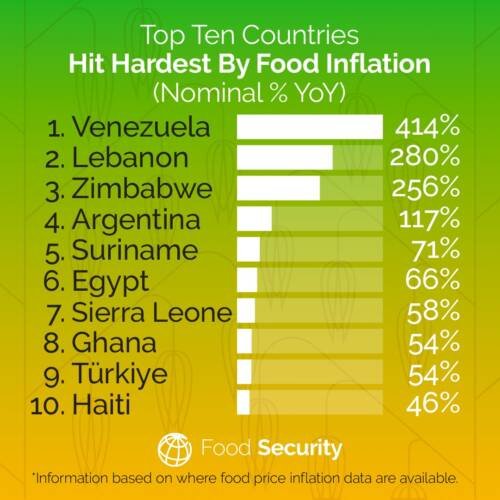The World Bank says, Nigeria is not among 10 countries hit hardest by food inflation.
The World Bank in the updated food security data released said that domestic food price inflation remains high around the world.
It said information from the latest month between February 2023 and May 2023 for which food price inflation data are available shows high inflation in most low and middle-income countries, with inflation higher than 5% in 63.2% of low-income countries, 79.5% of lower-middle-income countries, and 67% of upper-middle-income countries, with many experiencing double-digit inflation.
It added that 78.9% of high-income countries are experiencing high food price inflation.
The World Bank noted that most-affected countries are in Africa, North America, Latin America, South Asia, Europe, and Central Asia.
The most affected countries according to the World Bank included: Venezuela, Lebanon, Zimbabwe, Argentina, Suriname, Egypt, Sierra Leone, Ghana, Turkiye and Haiti.
It noted that in real terms, food price inflation exceeded overall inflation in 80.1% of the 166 countries where data is available.
It said since the last Update, two weeks ago, the agricultural, export, and cereal price indices closed 6%, 4%, and 10% higher, respectively.
The World Bank said there was an increase in maize and wheat prices, which closed 12% and 14% higher, respectively, after declining in the first half of July, drove the increase in the cereal price index, whereas rice prices have remained stable.
It noted that on a year-on-year basis, maize and wheat prices are 15% and 17% lower, while rice prices are 16% higher.
It stressed that maize, wheat, and rice prices are 8%, 11%, and 3% higher, respectively, than in January 2021.

